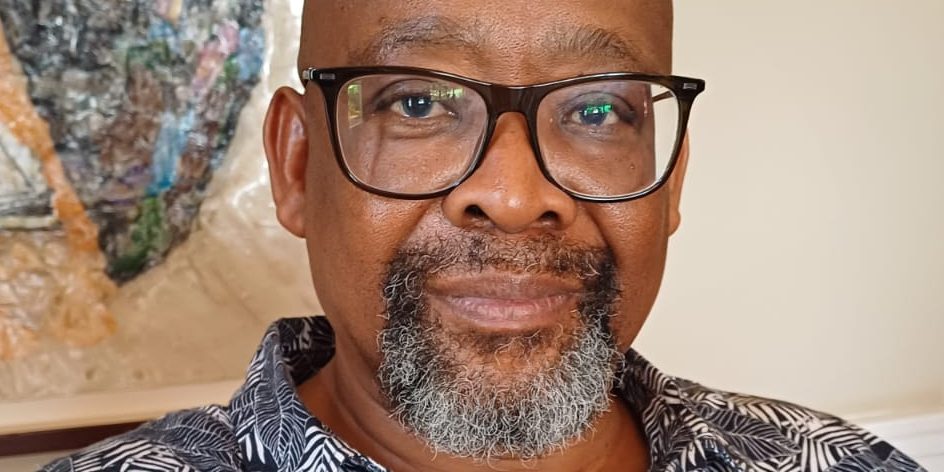EDUCATION INTERVENTIONS
‘Devastating’ inequality revealed while implementing education programmes

Desmond Lesejane, an executive team member at the education NGO Pilo, talks out about encounters while helping schools to improve learner outcomes.
Desmond Lesejane’s first-hand encounter with the poor living conditions in the deep rural areas of KwaZulu-Natal, where children were working at dagga plantations, was devastating.
Lesejane is an executive team member at the non-government organisation (NGO) Programme to Improve Learning Outcomes (Pilo), based in Parktown, Johannesburg.
This year marks a decade of operation for the NGO.
Speaking to Daily Maverick on Friday, 6 October 2023 at Pilo’s offices, Lesejane recalled how he once visited deep rural areas around Escort in the uThukela education district before dagga was decriminalised for personal use in 2018.
The visit was part of their interventions to assist schools to manage their curriculum better while Pilo was working with education districts in that province.
This, he said, “hit hard” on him.
Lesejane said he realised that he had encountered the realities of inequalities in the country. He said the mountainous areas in Escort were where the plantations were located.
“I talked to the children in Grade 8 and 9 and asked what they wanted to do in life. They’d say, ‘I want to work in the farms.’ They disappear during harvest seasons,” Lesejane said.
Working in plantations, he said, was the way their families survived.
“You know you are going to lose a certain number of learners. They will need catch-up sessions,” he said.
The poor catching-up
Pilo assists schools with best practices in implementing curriculum management and leadership. Lesejane said Pilo was doing interventions in districts in the Free State and Mpumalanga. They did work in primary schools in Gauteng before the Covid-19 pandemic.
Read more in Daily Maverick: Reopening: A shared responsibility of education departments and stakeholders
KwaZulu-Natal, he said, was chosen because it had the largest number of schools compared with other provinces. The province, he said, accounted for 25% of learners in the education system.
He said many private and former Model C schools did not have Saturday catch-up classes, especially in Gauteng, but their learners were already passing well.

Programme to Improve Learning Outcomes (PILO) executive management member Desmond Lesejane speaking to the Daily Maverick at their office in Parktown, Gauteng, South Africa, on Friday, 5 October 2023. (Photo: Msindisi Fengu)
Learners in poor communities, he said, were no longer taking part in sport and were instead focusing on catch-up classes.
“They need to catch up [to deal] with whatever gaps.”
He said teachers had shared stories about how primary school learners were struggling when they went to secondary school.
He said there were hardworking teachers in primary schools, but among the reasons for learners falling behind was the absence of standardised assessments at the primary school level.
‘Forgotten classes’
Lesejane said less attention was paid to learners in the lower grades in high school.
“It’s not the absence of teachers, but the orientation of the system, how attention is given to Grade 12s. Even in high school, learners in Grade 8 are a forgotten class.”
Then Grade 10s upwards are taken seriously, he said, adding that the government encourages competition around the National Senior Certificate (NSC).
We don’t come as messiahs. We say in every school there must be a curriculum management planner. It’s not a big complicated thing. You schedule, plan and monitor. You have what we call conversations. You undo that culture of policemen watching malicious compliance.
People in KwaZulu-Natal, he said, had been arguing that it was unfair to compare their matric results with other provinces, such as the Free State, which in 2022 had a pass rate of 85.7% compared with 76.8% in KwaZulu-Natal.
Read more in Daily Maverick: Matric Class of 2022 should be celebrated, but results not accurate ‘barometer’ for education system — experts
He said this was because of different dynamics. KwaZulu-Natal had larger districts, some of which could almost equal the whole Free State in their density, which required resources.
The question has been how that is factored in when considering the performance of provinces.
Interventions
When they started their work, Lesejane said, there was a realisation from the National Development Plan (NDP) of a need to improve outcomes, among others.
“Pilo was founded as part of an attempt to respond to the challenge put forward by the NDP.”
He said the National Education Collaboration Trust (NECT) was another organisation that was formed to respond to the NDP.
NECT, he said, was much bigger than Pilo but they were working in collaboration.
Read more in Daily Maverick: National Education Collaboration Trust celebrates a decade of milestones
He said the design of Pilo’s programme was to work at scale, meaning working in districts, provinces and then ending up working nationally.
“There are still valid motivations for doing that, including working at scale enables one to reach the whole system.”
This also saved them costs.
But, he said they started their work by coaching and training school management teams in pilot programmes in King Cetshwayo and Pinetown districts in KwaZulu-Natal. Similar work was done at a district in Northern Cape.
Agreements were signed with provinces and teacher unions.
“The idea was let’s see if working at scale will work. When we exit the system, we want to make sure that the programme is embedded in the system. This was part of the initial design.”
These interventions happened from 2015.
The initial plan was to work in four districts in KwaZulu-Natal but now the work is being done in six districts.
Before Covid-19 pandemic happened in 2020, he said there was a plan to work in all districts.
But it became clear that the model of bringing in coaches from outside to support schools, principals and districts was not sustainable.
From 2020, he said their efforts were to capacitate districts to be able to train schools on the models.
‘What we do’
He said districts were being assisted with best practices in implementing curriculum management leadership in schools. These practices were drawn from research.
He said poor planning, working in silos and poor line supervision were among the challenges faced by schools.
“We don’t come as messiahs. We say in every school there must be a curriculum management planner. It’s not a big complicated thing. You schedule, plan and monitor. You have what we call conversations. You undo that culture of policemen watching malicious compliance.”
He said they also acknowledge the agency of teachers, that they are professionals, they know what they are doing and in the classroom, they manage dynamics.
“We’ve been saying in every class a teacher needs to know how much has been covered, where the gaps are, what support they need and where that support comes from. A teacher must be able to go to the head of department and say we struggled with this. Can I get an adviser or can I go to peers in the same school if they are struggling with a concept?”
He said there were practical ways to do this such as a curriculum management cycle to enable teachers to do work, track it and share their struggles with the head of department in the school, who could escalate challenges to the district.
He said they have been saying that district leaders be supportive and not go to schools as policemen.
“We’re saying they must have professional conversations based on evidence. So as a circuit manager when you go to talk to a school principal you don’t play the man but the ball.”
Improvements
He said embedded in Pilo’s work is monitoring and evaluation.
But Lesejane said he did not want to claim all the wins.
“But based on what we hear from directors, the schools that we work with and from the monitoring data that we have there have been some improvements.”
He said they’ve been applauded by an education director in Motheo, Free State, and directors of uMkhanyakude and Ilembe in KwaZulu-Natal.
“One of the struggles that we have around NSC results is that we really think the resources that go to the [catch-up] camps now are not helping the education sector. It helps the matric pass rate.
“It is good for the poor schools to be boosted but that’s unhealthy and unsustainable competition because if you have learning gaps that accumulate from Grade R, learners have to do catch-ups because they’ve lost learning in the earlier phases of their lives and nobody is paying much attention.”
He said psychologists had been saying that if a learner was struggling at the age of seven they would have problems in the future.
“Our focus has been trying to shift the system to do things better.” DM




















 Become an Insider
Become an Insider
Editor: Please correct: the town’s name is Estcourt.